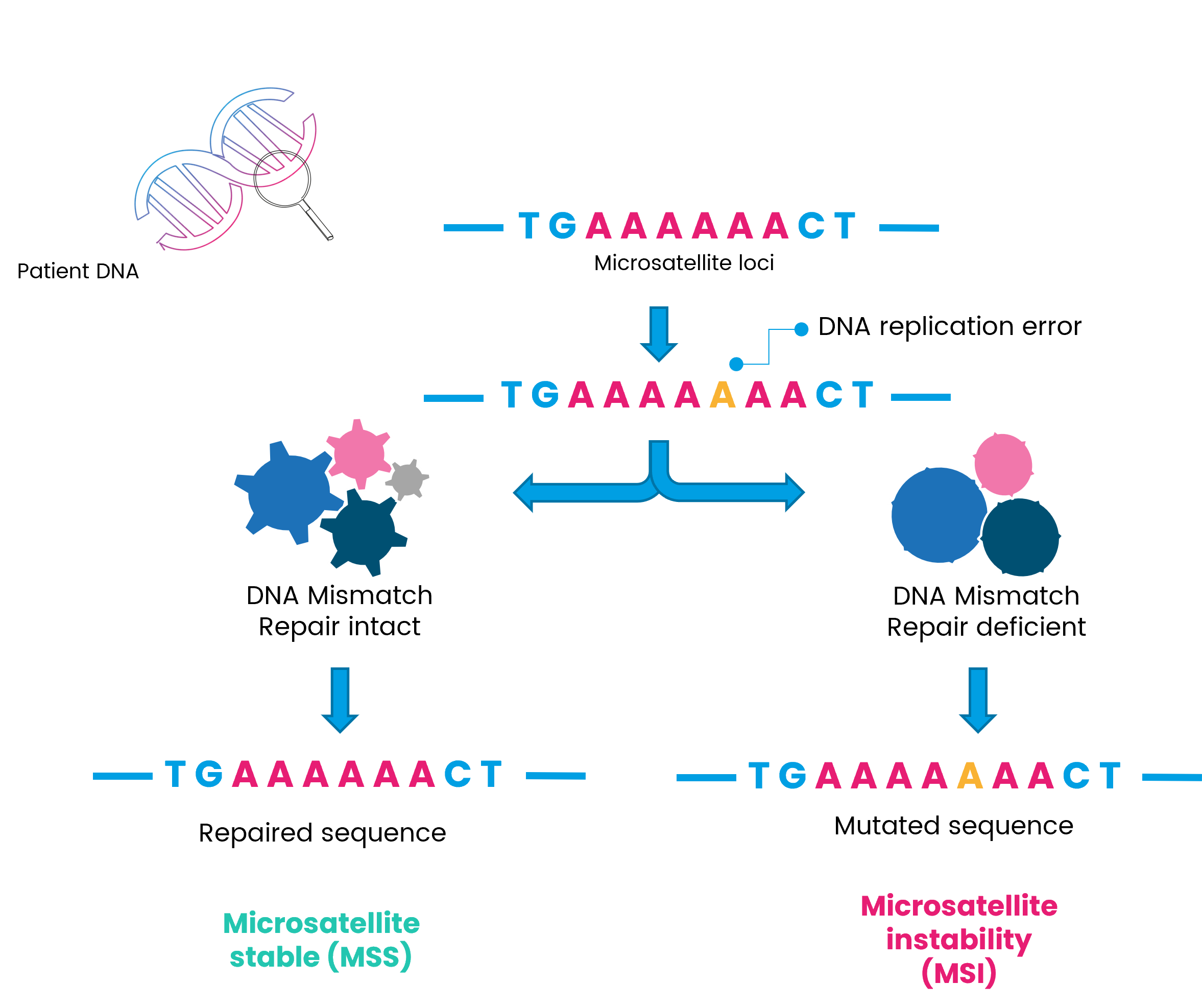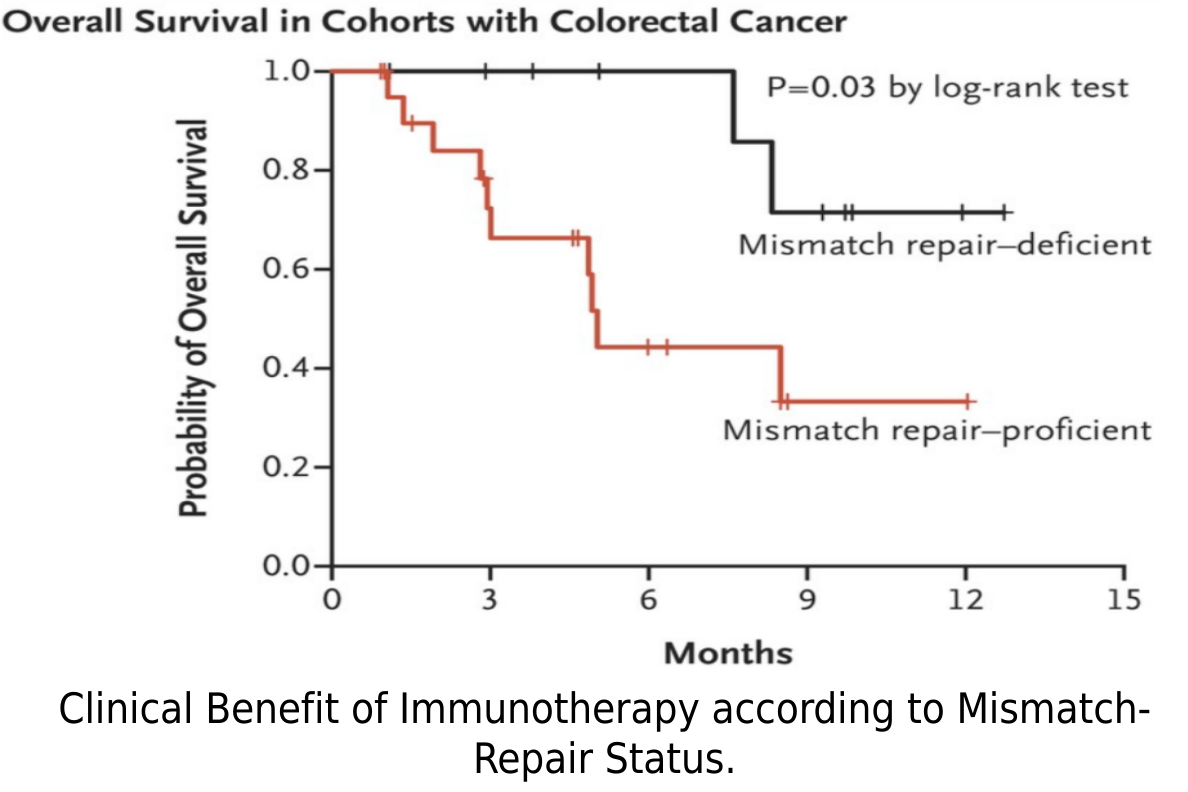
A booming genomic biomarker for theranostic application
Microsatellite Instability (MSI)
MSI, the molecular hallmark of the DNA mismatch repair system deficiency (dMMR)
Microsatellite instability (MSI) is a phenomenon that occurs when the DNA mismatch repair (MMR) system is not functioning properly, leading to errors in the replication of short, repetitive DNA sequences known as microsatellites. This is a common occurrence in many types of human cancers, where it can contribute to the development and progression of the disease.
MMR is an essential process that helps to maintain the integrity of the genome by correcting errors that occur during DNA replication. When MMR is disrupted, as is often the case in cancer cells, the resulting accumulation of mutations can lead to increased genetic instability and a higher risk of cancer development. MSI has been identified as a diagnostic marker for certain types of cancer, including colorectal, endometrial, and gastric cancers. It can also have implications for treatment, as some MSI-positive cancers may respond differently to certain therapies than MSI-negative cancers.
Understanding the role of MSI in cancer development and progression is an important area of research, with potential implications for both diagnosis and treatment of the disease.
At MSInsight, we are focusing on this domain.

MSI is of major interest in cancer cancer

About 4% of all human cancers display a MSI phenotype which translates to approximately 700,00 new cases per year worldwide.
MSI status was recently shown to predict clinical benefit from immune checkpoint inhibitors (ICI) in patients.
These observations and others have led to international guidelines recommending universal MSI screening of all newly diagnosed tumors regardless of the primary tissue of origin.
MSI has been approved as the first tumor biomarker predicting response to ICI regardless of primary tumor location *
MSI diagnosis is still lacking of molecular methods tailored to clinical needs
Reference methods, i.e, IHC and/or PCR, are facing some limitations to detect MSI/dMMR in tumor samples.
By contrast, genomic sequencing (NGS) constitutes a very promising technique to overcome this limitations by allowing i) to screen for MSI in pan-cancer ; ii) in the absence of paired-normal DNA and iii) in circulating tumoral DNA or liquid biopsies.

